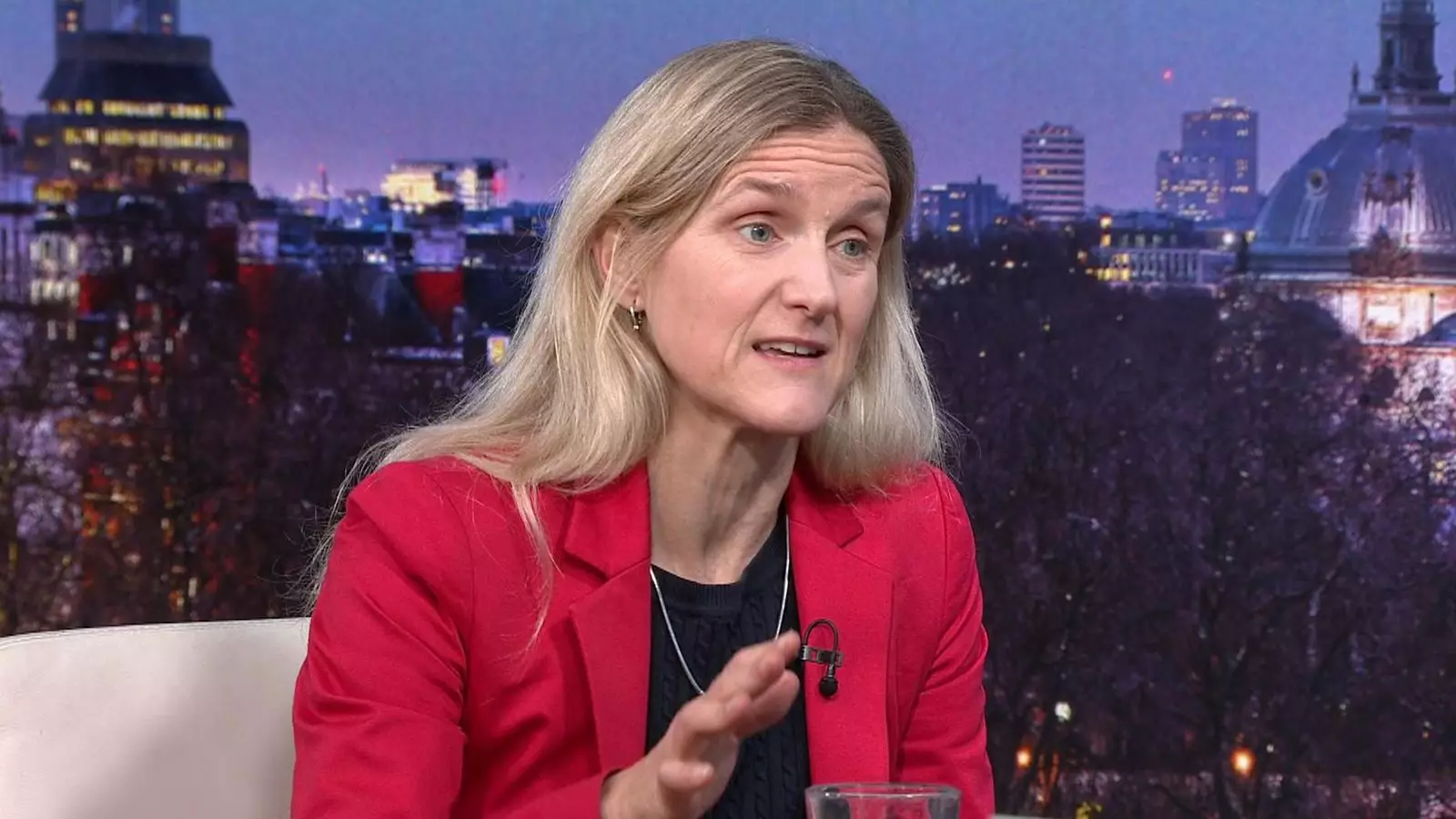The discourse around assisted dying in the UK has reached a pivotal moment with the introduction of new legislative measures proposed by Labour MP Kim Leadbeater. While the conversation on assisted dying has been ongoing, the latest suggestion aims to shift the oversight responsibilities from the judiciary to a multi-disciplinary expert panel. Initially detailed in the Terminally Ill Adults (End of Life) Bill, Leadbeater’s revised proposal suggests a system where a three-member panel, inclusive of seasoned professionals like retired High Court judges and King’s Counsel, would preside over cases for assisted dying. This modified framework has emerged as a response to calls for more nuanced decision-making processes surrounding end-of-life choices.
Past debates on the subject have often hinged on the imperative of maintaining robust legal oversight to protect vulnerable individuals. However, Leadbeater’s amendment raises essential questions about the role of legal professionals versus that of healthcare experts. Advocates of this approach argue that relying on a multi-disciplinary panel—which would include psychiatrists, social workers, and medical professionals—enhances the safeguards against potential coercion or undue pressure faced by individuals considering assisted dying. Leadbeater has described the system as a “judge plus” initiative, asserting it offers more comprehensive oversight by integrating the insights of various specialists in caring for terminally ill patients.
Nevertheless, the new framework has drawn significant criticism, with opponents arguing that it compromises necessary safeguards designed to protect individuals who might be vulnerable. Critics such as Tory minister Danny Kruger have vocally denounced the modification, labelling it “a disgrace” and citing concerns over the potential implications for patients at their most vulnerable. Labour MP Diane Abbott asserts that this bill constitutes poorly conceived legislation that must be opposed. Her concerns echo those of others who fear that reducing judicial involvement in such sensitive matters may open the door to increased risk of coercion or inadvertent euthanasia without sufficient safeguards in place.
Former Liberal Democrat leader Tim Farron added to this chorus of disapproval, emphasizing that even existing safeguards within the proposal appear to be compromised as a result of the amendments. As the parliamentary committee prepares to scrutinize Leadbeater’s proposal line by line, the tensions between public opinion, ethical considerations, and legal protections have come to the fore. With the parliamentary committee already exhibiting a narrow pro-assisted dying majority, there exists an urgent need for more extensive evaluation of the implications these changes may carry.
In a recent conversation on Sky News, Leadbeater addressed concerns about the absence of a High Court judge in every instance involving assisted dying. Her argument hinges on the belief that a multi-disciplinary approach, rather than a strictly legalistic framework, could better serve patients’ needs. She highlighted that evidence gathered during consultations indicates a necessity for diverse expertise in decision-making surrounding assisted dying. This approach prioritizes not just the legal oversight but also the ethical and emotional dimensions faced by patients contemplating this significant life choice.
Despite the endorsement of the idea of multidisciplinary panels, there remains apprehension about how well these panels will function in practice. Specifically, the proposal includes a Voluntary Assisted Dying Commission chaired by a former High Court judge tasked with overseeing applications and ensuring adherence to ethical guidelines. However, the effectiveness of such oversight will depend greatly on the procedures established and the qualifications of the panel members involved. The proposed requirement for two independent doctors to assess each case brings an additional layer of accountability, but the question remains as to how these safeguards will be implemented and monitored.
As discussions continue to unfold in Parliament, broader societal implications of these legislative adjustments cannot be overlooked. Concerns expressed by charities such as Mencap serve as a reminder of potential unintended consequences that may arise from legalized assisted dying. Advocacy groups have noted that discussions surrounding this legislation could inadvertently pressure individuals with disabilities or chronic illnesses toward choices they may not genuinely desire. Thus, any changes in the legal landscape must proceed with caution, weighing the rights and voices of all stakeholders involved.
With the committee on the verge of detailed deliberation, the future of the Assisted Dying Bill remains uncertain. As the conversation further evolves, it is imperative that all viewpoints be examined critically, ensuring that not only is the autonomy of individuals respected but also that vulnerable populations receive the protection and support they need. The balance between compassion and caution will undoubtedly shape the trajectory of this sensitive issue in UK legislation.


Leave a Reply